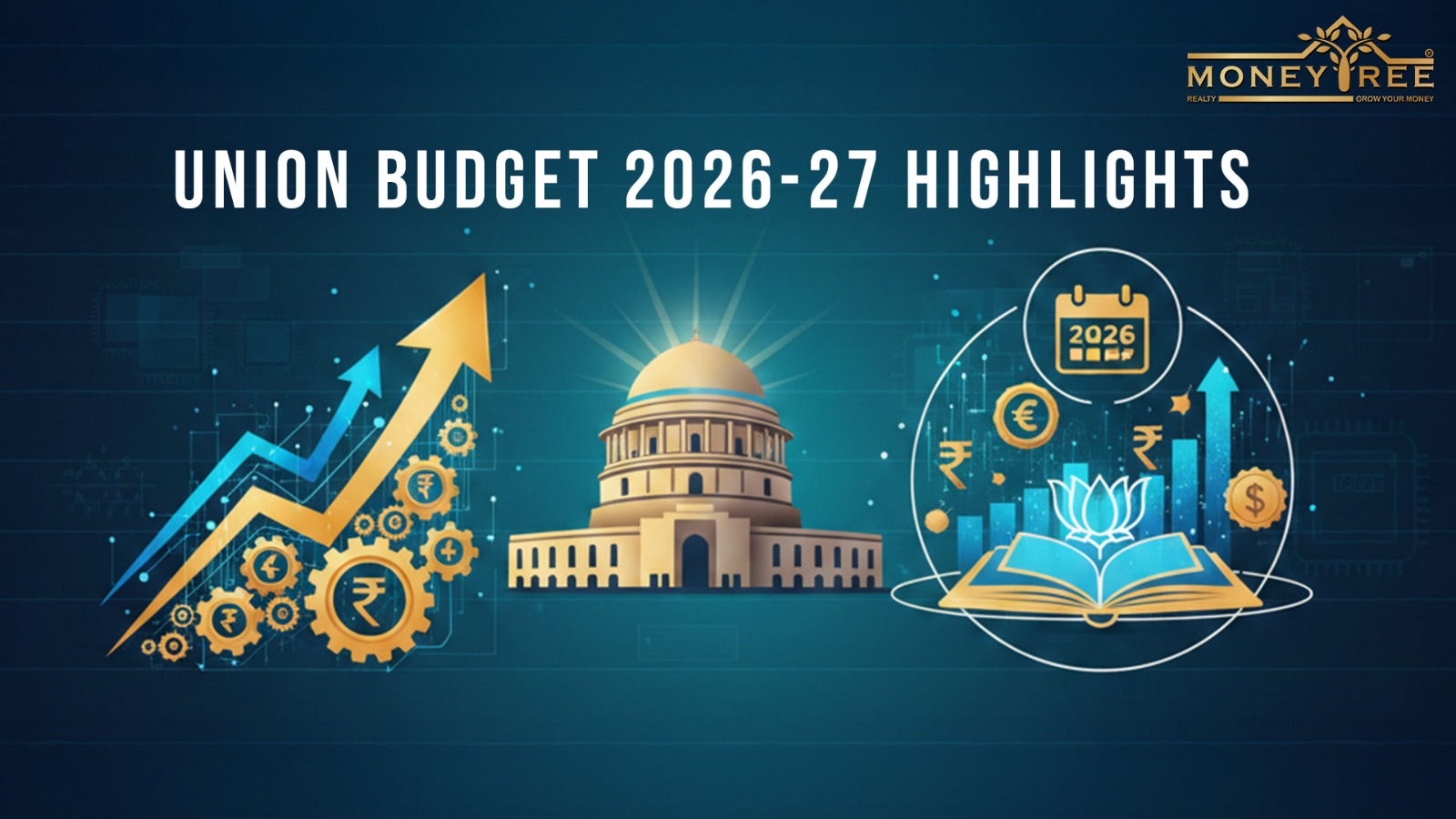
CSR Policy
HOME › CSR Policy
CORPORATE SOCIAL RESPONSIBILITY POLICY
{FRAMED UNDER SECTION 135 OF THE COMPANIES ACT, 2013 READ WITH CORPORATE SOCIAL RESPONSIBILITY (CSR) POLICY RULES, 2014}
Table of Contents
List of Abbreviations
| The Act | Section 135, Companies Act, 2013 |
| The Rules | Companies (Corporate Social Responsibility Policy) Amendment Rules, 2021 |
| The Company | Moneytree Realty Services Limited |
| AAP | Annual Action Plan |
| BoD | Board of Directors |
| CSR | Corporate Social Responsibility |
| FY | Financial Year |
| GoI | Government of India |
| MCA | Ministry of Corporate Affairs |
CONTEXT
Moneytree Realty Services Limited (referred to as the Company hereafter) was established in 2021 by Mr. Sachin Arora and Ms, Jyoti Kapoor. Moneytree Realty Services Limited offers to channelise the real estate market in India and bring in transparency between clients and developers in commercial property, best residential property and plots for sale and create brand value with our property advisor. Our vision to uplift Indian real estate industry standards along with maintaining quality of service and enhancing client experience and satisfaction.
Our sales associates believe in a client-centric approach and offer rich and satisfactory experiences to each client with their extensive knowledge of market trends and investment analysis and strive to add moral ethical standards & professionalism and create waves in the Indian real estate industry that synchronises with top client-centric service and promising real estate investment. The Company have been consciously developing Corporate Social Responsibility (CSR) initiatives that contribute to the sustainable development of society, and the environment.
POLICY STATEMENT
The CSR Policy has been formulated and approved by the Board of Directors (BoD).
Our CSR initiatives are guided by the following core commitments:
-
To contribute to social, economic and environmental development initiatives in the communities in which we operate and the society at large.
-
To ensure all CSR initiatives undertaken by the Company have a long-term sustainable and positive impact on marginalized populations by aiming Schedule VII CSR activities.
Scope and Applicability
The CSR policy is formulated in accordance with the requirement of the Section 135, Companies Act, 2013 (referred to as The Act), and Companies (Corporate Social Responsibility Policy) Amendment Rules, 2021 (referred to as The Rules hereafter).
This policy applies to:
-
All the CSR projects /programs undertaken by the Company in India
-
All subsidiaries of the Company in India
GOVERNANCE STRUCTURE
We have established a well-defined and robust governance structure in compliance with the requirements of The Act.
Board of Directors (BoD)
- At the apex level, the BoD has the authority to approve the CSR Policy and expenditure under various CSR initiatives while ensuring that the Company spends 2% of the average net profit made during the three immediately preceding financial years (FY).
- The BoD ensures proper implementation, and disclosure of all the CSR activities and expenditure in the Annual Report of the Company as per the Annexure-II of The Rules.
- The BoD ensures that the CSR Policy is displayed on the Company's website.
- Formulate a CSR Policy which indicates the initiatives to be undertaken by the Company as specified in Schedule VII of The Act.
- Recommend the amount of expenditure to be incurred on the CSR activities to be undertaken by the Company.
- Review the CSR Policy of the Company every year.
- Formulate and recommend an Annual Action Plan (AAP) every year
- Institute a transparent implementation and monitoring mechanism for the CSR initiatives of the Company.
CSR FOCUS AREAS
The focus areas for the Company for CSR initiatives is based on the list of activities mentioned in the Schedule VII of The Act, and the need assessment carried out by the company every year. Schedule VII activities are listed below:
- Eradicating hunger, poverty and malnutrition safe drinking water and sanitation.
- Promoting education, including special education and employment enhancing vocational skills especially among children, women, elderly and the differently abled and livelihood enhancement projects.
- Promoting gender equality, empowering women, setting up homes and hostels for women and orphans; setting up old age homes, day care centers and such other facilities for senior citizens and measures for reducing inequalities faced by socially and economically backward groups.
- ensuring environmental sustainability, ecological balance, protection of flora and fauna, animal welfare, agroforestry, conservation of natural resources and maintaining quality of soil, air and water.
- Protection of national heritage, art and culture including restoration of buildings and sites of historical importance and works of art; setting up public libraries; promotion and development of traditional art and handicrafts.
- Measures for the benefit of armed forces veterans, war widows and their dependents.
- Training to promote rural sports, nationally recognized sports, Paralympic sports and Olympic sports
- Contribution to the prime minister's national relief or any other fund set up by the central govt. for socio economic development and relief and welfare of the schedule caste, tribes, other backward classes, minorities and women.
- Contribution to incubators or research and development projects in the field of science, technology, engineering and medicine, funded by the Central Government or State Government or Public Sector Undertaking or any agency of the Central Government or State Government Contributions to public funded Universities
- Rural development projects
- Slum area development where 'slum area' shall mean any area declared as such by the Central Government or any State Government or any other competent authority under any law for the time being in force
- Disaster management, including relief, rehabilitation and reconstruction activities
- Contributions to public funded Universities; Indian Institute of Technology (IITs); National Laboratories and autonomous bodies established under Department of Atomic Energy (DAE); Department of Biotechnology (DBT); Department of Science and Technology (DST); Department of Pharmaceuticals; Ministry of Ayurveda, Yoga and Naturopathy, Unani, Siddha and Homoeopathy (AYUSH); Ministry of Electronics and Information Technology and other bodies, namely Defense Research and Development Organisation (DRDO); Indian Council of Agricultural Research (ICAR); Indian Council of Medical Research (ICMR)and Council of Scientific and Industrial Research (CSIR), engaged in conducting research in science, technology, engineering and medicine aimed at promoting Sustainable Development Goals (SDGs)
CSR EXPENDITURE
We commit to spending a minimum of 2% of the average net profits for the preceding three FYs on CSR initiatives. Any capital assets created or acquired out of our CSR funds will be transferred to the entities within 180 days. Any initiatives undertaken in pursuance of the normal course of our business is not considered CSR by the Company.
Qualification for CSR expenditure:
- BoD ensures that the CSR initiatives are related to the subjects specified in Schedule VII of The Act and the Rules notified by the Ministry of Corporate Affairs (MCA), Government of India (GoI). Any surplus arising out of our CSR initiatives will not form part of the business profit and will be spent on the same project that gave rise to the surplus.
- The unspent amount of an ongoing or multi-year project of a particular FY will be transferred to a designated account called the Unspent Corporate Social Responsibility within 30 days of the end of the FY.
- In case of any excess spent (i.e. more than 2% mandated expenditure), the amount will be set off over the next 3 FYs as per The Rules.
Exclusion in the CSR expenditure:
- Projects/Programs/Activities that benefit only the employees of the Company and their families.
- Any activities undertaken in pursuance of the normal course of business of the Company.
- Payments made as part of legal settlements, such as compensation, fines and penalties.
- Core business activities that may have a community or societal benefit
- Payment of taxes and royalties, and creation of employment
- The payment of salary/wages to employees and workers during an emergency period
- Contribution of any amount directly or indirectly to any political party
- Events such as marathons/ awards/ charitable contribution/ advertisement/sponsorships of TV programs etc
GUIDING PRINCIPLES OF SELECTION, IMPLEMENTATION AND MONITORING OF THE CSR INITIATIVES
Moneytree Offices are located in different parts of the country. The introduction of any CSR initiatives preferably benefit the local communities in the vicinity of the cities where the offices are situated through better infrastructure and services. The Company also makes sure that the maximum benefit of the CSR initiatives goes to the marginalized and underprivileged sections of the society including migrant workers in labor-intensive industries, and school children from low-income backgrounds.
Need Assessment for all CSR initiatives is carried out by the Company. Need assessment may be based on the existing knowledge and experience of the Company, research, and reports available in the public domain, development studies conducted in the intervention areas, and discussions that may be held with the District Authorities as per requirement. Participatory research exercises, interviews with the beneficiaries, and baseline surveys may also be conducted either by the Company or an expert organization or a third party.
IMPLEMENTATION
The following guidelines/modalities will be followed while implementing the CSR initiatives of the Company:
- At the beginning of every FY, the BoD approves an AAP for the CSR initiatives to be undertaken during that year.
- The suggestions by the BoD are duly considered to make required changes in the AAP.
- Quarterly reviews of multi-year projects. The starting of work or release of the first payment towards the project, whichever is earlier, is considered as the starting date
- BoD decides from time to time, the initiatives for which an impact assessment is to be carried out
- 95% of the CSR budget will be utilized towards CSR activities and the rest 5% will be used for the personnel/ consultants/experts for carrying out the CSR initiatives. This will be included as general management and administrative expenses as per The Rules.
The implementation of initiatives will be done by the following modes:
- Direct implementation – CSR initiatives directly implemented by the Company itself.
- Indirect implementation - CSR initiatives implemented with the involvement of implementation agencies.
The implementation agencies may include:
- A company established under section 8 of The Act, or a registered public trust or a registered society, registered under section 12A and 80 G of the Income Tax Act, 1961 (43 of 1961), established by the company, either singly or along with any other company, or
- a company established under section 8 of the Act or a registered trust or a registered society, established by the Central Government or State Government; or
- any entity established under an Act of Parliament or a State legislature; or
- a company established under section 8 of the Act, or a registered public trust or a registered society, registered under section 12A and 80G of the Income Tax Act, 1961, and having an established track record of at least three years in undertaking similar activities
Due diligence for the implementation agencies will be carried keeping the following points inconsideration:
- Registration under section 12A and 80G of the Income Tax Act, 1961
- A unique CSR registration number from the MCA, GoI
- Utilization Certificate with the statement of expenditure duly certified by a Practicing Chartered Accountant/Authorized Auditor to be submitted by the implementing agencies for the CSR fund provided to them
MONITORING
Embedded in Moneytree's commitment to responsible business is the rigorous monitoring of all the CSR initiatives, and ensuring these initiatives have a positive impact on society as a whole.
Our monitoring system will involve the following steps:
- Tracking of activities to understand if they are in line with project plans, timelines, and budgets
- Monitoring of reach and outcomes to assess whether the short-term goals of the projects have been met.
- Collecting and analyzing outcome data to understand how projects have benefited the target area or the beneficiaries.
- Periodic external evaluations on some initiatives, as required, to ensure the broader relevance of our activities and how to better design and implement them
This information is collected through a variety of methods depending on the initiative, including site visits, Management Information System, reports, interviews, and case studies, on an ongoing basis. Performance and impact data will be aggregated annually, along with the budget utilization, and will be published in the Annual Report of the Company.
Amendment
The Company reserves its right to amend or modify this Policy in whole or in part, at any time without assigning any reason whatsoever.



